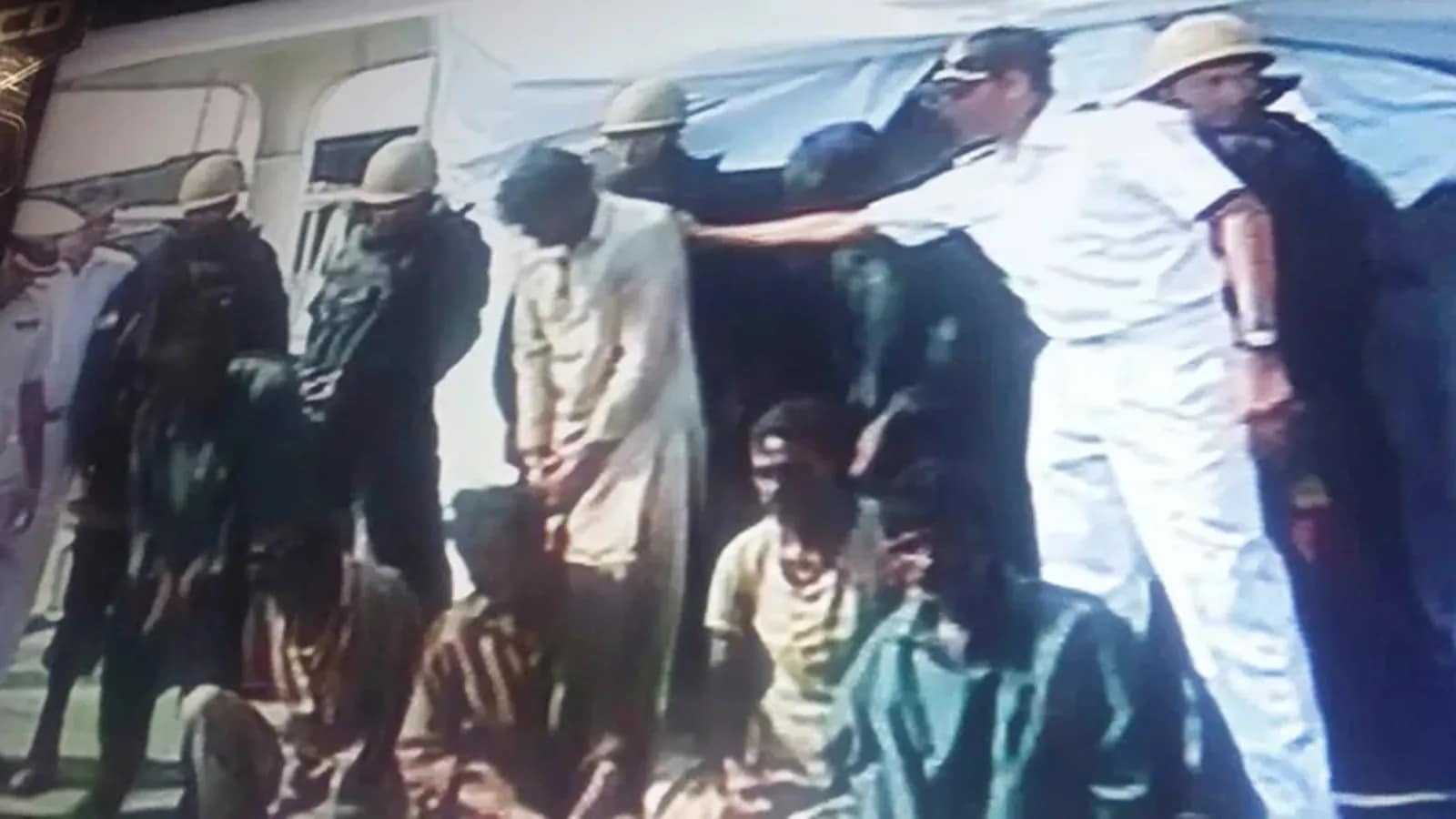It’s 12.30 pm, and in court number 42 of Mumbai’s City Civil and Sessions Court, there’s a low murmur of voices as the judge pronounces his ruling. The interactions are hushed, but listen closely, and you’ll find a common link between speakers — they’re all speaking Sindhi.
On January 1, eight Pakistani men — Alibaksha Sindhi, 48, Maksud Akhtar Masim, 54, Mohammad Baksh Sindhi, 55, Mohammad Ahmad Inayat, 37, Mohammad Yunus Sindhi, 44, Mohammad Yusuf Abdulla Gagawani, 58, Mohammad Gulhasan Baloch, 40, and Gulhasan Siddhiq Sindhi, 50 — were Sentenced to 20 years in jail for carrying 232 kg of heroin on a fishing boat off the Gujarat coast in 2015.
The trial presented a situation rarely seen since the days of Partition — the coming together of eight Sindhis, not only the convicts but their Indian defense lawyer and the prosecution attorney.
The Sindhi community is an ethnolinguistic group native to the Sindh region of Pakistan. The third-largest ethnic group in that country, many of its members who followed Hinduism were displaced and migrated to India in 1947. Many who lived around Karachi disembarked on Bombay docks and settled in and around Mumbai.
Sindhi speakers are a linguistic minority in India. According to the 2011 Census, India had a total of 27,72,364 Sindhi speakers. Gujarat, Maharashtra and Rajasthan have the highest Sindhi population.
 A boat carrying 232 kgs of narcotics valued at Rs 600 crore was seized and eight Pakistani crew onboard were arrested on April 20, 2015.
A boat carrying 232 kgs of narcotics valued at Rs 600 crore was seized and eight Pakistani crew onboard were arrested on April 20, 2015.
In the court that day, six of the eight convicts and the lawyers — both defense attorney Anil G Lalla and prosecutor Sumesh Panjwani — all interacted in Sindhi: a language they still speak at home.
According to Anil G Lalla, the defense lawyer who represents seven of the eight convicts, he joined the case pro-bono lawyer in 2020 when one accused approached him — perhaps after he overheard him speaking Sindhi. The eighth was represented by another lawyer.
“My father Gopal, who is 91 now, speaks in the same dialect as some of these men. He remembers having a home in Karachi,” he says. Gopal, also a former lawyer, was 13 when he migrated to India with his mother and older brother in 1947. Having lost his father when he was a baby, the family settled in Ajmer, Rajasthan, with the help of an uncle. In 1958, Gopal, who completed his law studies in Ajmer, moved to Mumbai to practice.
“He was one of the first lawyers to specialize in the Narcotic Drugs and Psychotropic Substances (NDPS) Act when it was enacted in 1985,” Lalla says.
Migration to India during the Partition is a connection he shares with Panjwani, whose family comes from Larkana in Pakistan’s Sindh province.
“My father was eight years old when they moved to India (in 1947). His family first came to the barracks set up for the community in Chembur, now known as the Chembur camp area. He got a job with the Bombay Port Trust. He wanted me to become a lawyer: he would say that my grandfather was a mukhtayar (attorney) in Pakistan. He passed away a decade ago but not before he visited Pakistan and saw his home,” Panjwani says, adding that while his father did not meet anyone known to him, those living in the neighborhood now treated him with respect for having returned for a visit. .
Lalla says his father made sure he and his two sisters were brought up in the Sindhi culture, just like himself. “He always tells us fond memories about his childhood and still harbors a dream of visiting his home there,” Lalla said, adding that when he took up the case, he made sure to tell his father that clients spoke the same dialect as he did. .
At the end of the trial, the judge made a special mention of the manner in which the lawyers in the case assisted the court in the proceedings.
The eight men will serve another decade in prison before completing their terms.
According to records, on April 26, 2015, the Coast Guard was patrolling at the National Maritime Border off Gujarat when around 3.10 am, its radar showed the presence of a boat with no flag. The officials boarded the boat, which had no name or number, and found eight crew members who were Pakistani nationals. The men claimed they were fishermen and faced a problem with the engine during their fishing trip.
The officials searched the boat but no fish catch was found. Instead, there were 11 blue drums with packets. On reaching the shore at Porbandar, the packets were tested and were found to contain heroin. The contraband weighed 232 kg – one kg in each packet. The men also had three satellite phones, two GPS navigation charts, mobile phones and an inverter.
After that, the Yellow Gate police in Mumbai filed an FIR under the NDPS Act and the men were brought to Mumbai and lodged in a city jail.
Discover the benefits of our subscription!
Stay informed with access to our award-winning journalism.
Avoid misinformation with trusted, accurate reporting.
Make smarter decisions with insights that matter.
Choose your subscription package
